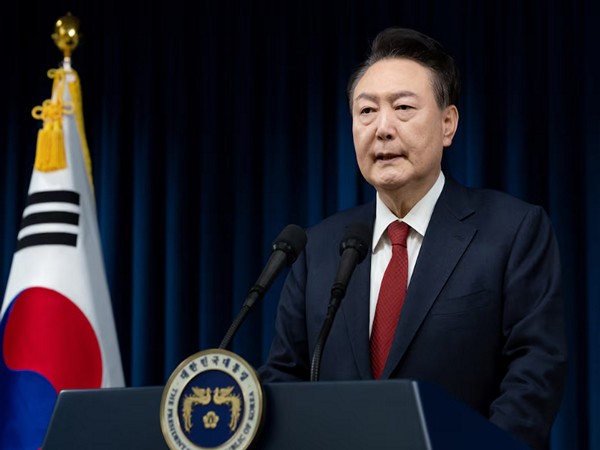Historic Detention: Ex-Korean President Faces Arrest Post-Impeachment
Former South Korean President Yoon Suk Yeol, impeached over an attempt to impose martial law, faces detention after a Seoul court approved a warrant. The warrant follows his failure to comply with questioning, marking a first in the nation's history. The Presidential Security Service will ensure procedures are legally followed.

- Country:
- South Korea
In an unprecedented move, a Seoul court on Tuesday sanctioned a detention warrant for former South Korean President Yoon Suk Yeol, following his impeachment linked to an attempt to impose martial law. According to Yonhap News Agency, this marks the first occasion a sitting president in South Korea faces potential arrest.
The Seoul Western District Court permitted the Corruption Investigation Office for High-ranking Officials (CIO) to issue the warrant, as it probes Yoon's December 3 impeachment by the National Assembly. This was over allegations of attempted martial law, which Yoon reportedly sought to enact.
The court also granted a warrant to search Yoon's presidential residence. The CIO moved forward with the detention warrant after Yoon's repeated failures to comply with summonses for questioning. Once detained, the agency has 48 hours to decide on requesting an arrest warrant for longer detention, with warrants lasting up to seven days.
The court refuted Yoon's arguments against the jurisdiction of the CIO and the legality of the warrant. Furthermore, alleged issues with securing his personal safety during questioning were dismissed. Following these developments, the Presidential Security Service confirmed it would manage the situation per legal protocols.
South Korean law generally grants immunity from prosecution to the sitting president, but exceptions exist for insurrection or treason charges. The National Assembly impeached Yoon on December 14, voting overwhelmingly for the move, following a secret ballot where 204 out of 300 members supported it.
This significant political event led to Yoon's suspension from office, marking a milestone in South Korea's governance history. (ANI)
(With inputs from agencies.)










